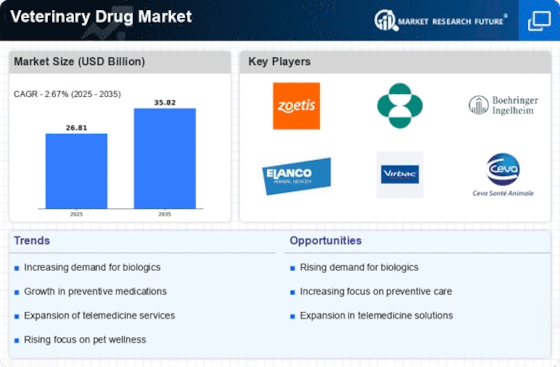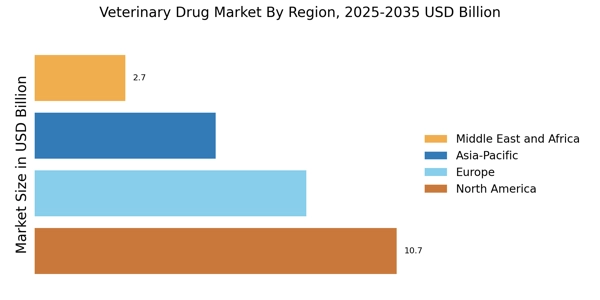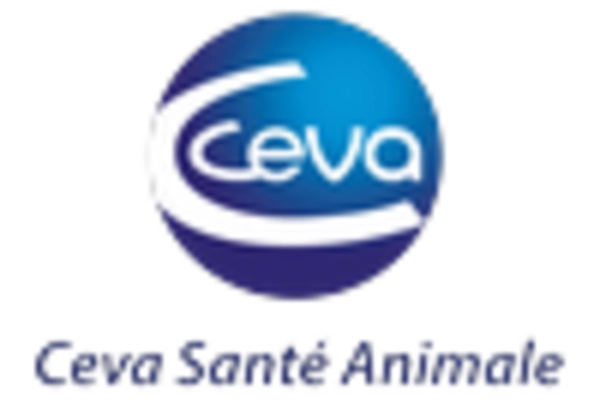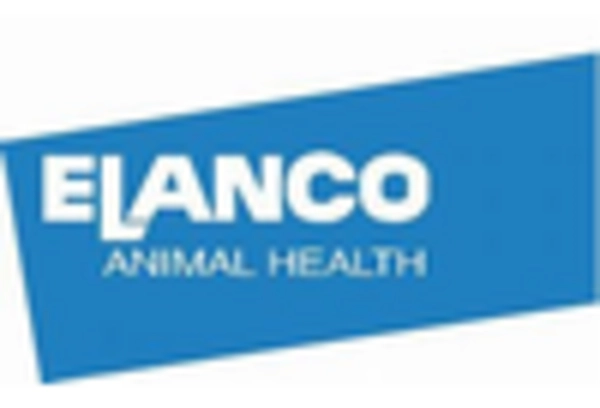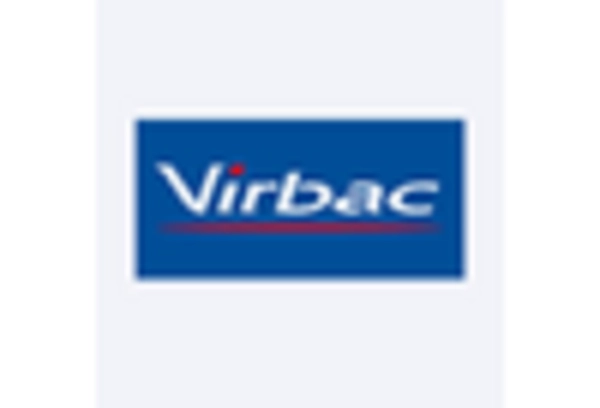Increase in Pet Ownership
The rise in pet ownership appears to be a primary driver of the Veterinary Drug Market. As more households adopt pets, the demand for veterinary services and medications increases correspondingly. Recent statistics indicate that approximately 67% of households own a pet, which translates to a significant market for veterinary drugs. This trend is likely to continue, as pet owners increasingly view their animals as family members, leading to higher spending on healthcare. Consequently, the Veterinary Drug Market is expected to expand as pet owners seek preventive care and treatment options for their pets, thereby driving sales of various veterinary pharmaceuticals.
Expansion of Veterinary Services
The expansion of veterinary services, including specialty and emergency care, appears to be a significant factor driving the Veterinary Drug Market. As veterinary practices diversify their offerings, they are increasingly incorporating advanced medical treatments and pharmaceuticals into their services. This trend is evident in the rise of specialty clinics that focus on specific areas such as oncology or cardiology, which often require specialized drugs. The Veterinary Drug Market is likely to benefit from this expansion, as more comprehensive care options lead to higher demand for a wider range of veterinary medications, ultimately enhancing the overall market landscape.
Regulatory Changes and Compliance
Regulatory changes regarding veterinary drugs are likely to influence the Veterinary Drug Market significantly. Stricter regulations on drug approvals and usage can create both challenges and opportunities for manufacturers. For example, the implementation of guidelines for antimicrobial use in livestock is pushing the industry towards more responsible practices. This shift may lead to increased demand for alternative therapies and preventive medications. As companies adapt to these regulations, the Veterinary Drug Market may experience a transformation in product offerings, with a focus on sustainability and animal welfare, ultimately benefiting both the market and animal health.
Rising Awareness of Animal Health
The growing awareness of animal health and welfare is a crucial driver for the Veterinary Drug Market. Pet owners are becoming more informed about the importance of regular veterinary check-ups and preventive care, which in turn increases the demand for veterinary drugs. Educational campaigns and outreach programs are contributing to this trend, emphasizing the need for vaccinations, parasite control, and chronic disease management. As awareness continues to rise, the Veterinary Drug Market is expected to see a corresponding increase in the consumption of various veterinary pharmaceuticals, reflecting a shift towards proactive health management for pets.
Advancements in Veterinary Medicine
Technological advancements in veterinary medicine seem to be reshaping the Veterinary Drug Market. Innovations such as telemedicine, advanced diagnostic tools, and new drug formulations are enhancing the quality of care provided to animals. For instance, the introduction of biologics and monoclonal antibodies has opened new avenues for treatment, particularly in chronic conditions. The market for veterinary pharmaceuticals is projected to grow as these advancements lead to more effective treatments and increased compliance among pet owners. This evolution in veterinary care not only improves animal health outcomes but also stimulates demand for new and existing veterinary drugs.


